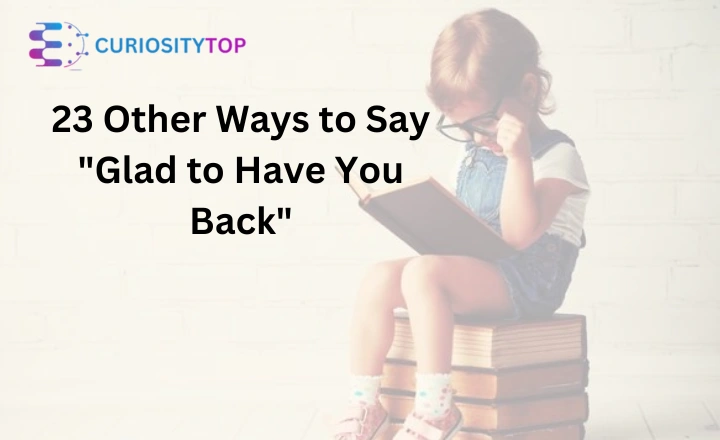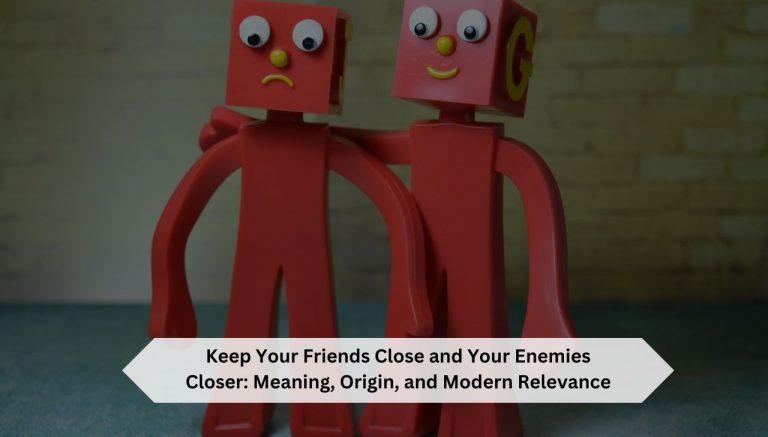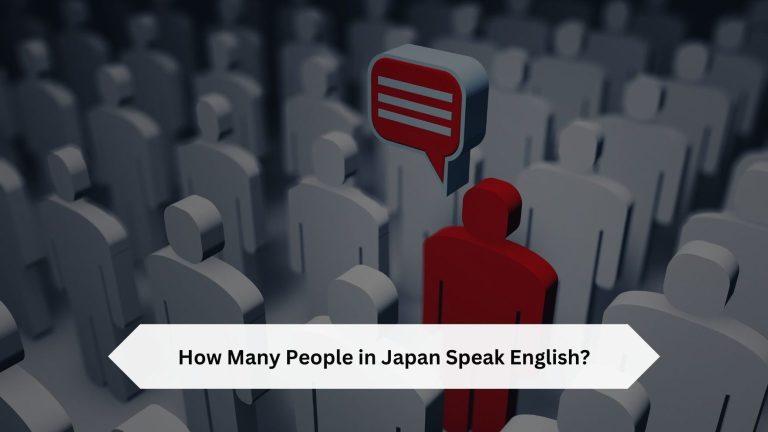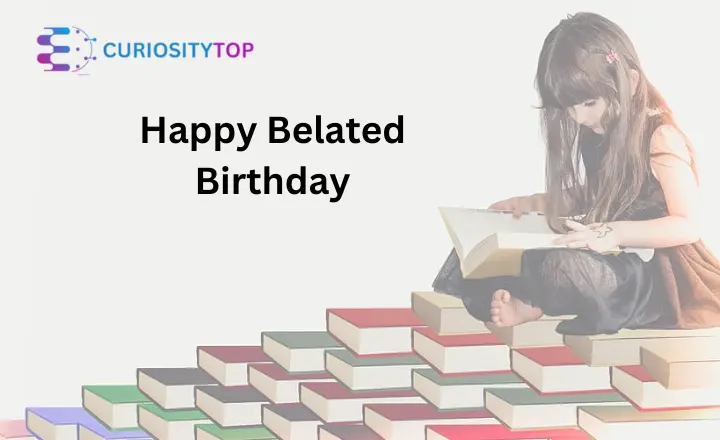23 Other Ways to Say “Glad to Have You Back”
Glad to have you back represents more than just a simple greeting, it’s a powerful expression of connection, appreciation, and emotional reunion. In a world where relationships often span distances and time, the right words can bridge gaps, heal separations, and reignite the warmth of human connection. Whether reuniting with a colleague, friend or loved one, mastering the language of welcome back transforms mere words into meaningful moments of genuine connection and heartfelt recognition.
Glad to Have You Back
Reunions matter. How we welcome someone back can transform their emotional experience, whether it’s a colleague returning to work, a friend coming home from a journey, or a family member rejoining after time away. Glad to be back sentiments carry the power to make people feel valued, missed, and essential.
Warm Receptions
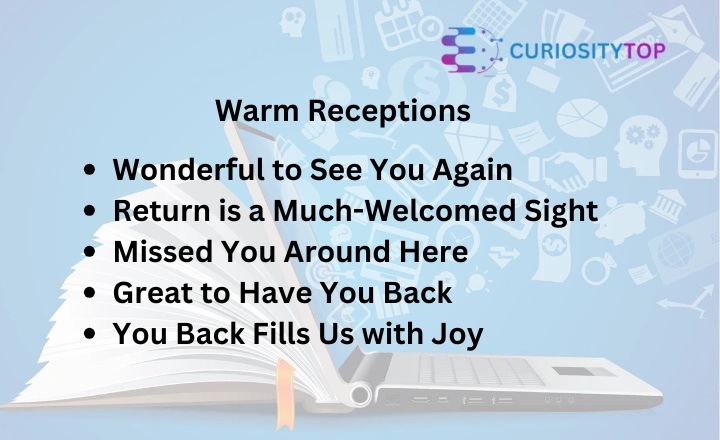
It’s Wonderful to See You Again
Usage Context: Perfect for personal and professional reunions after a significant absence.
Example Scenario: A colleague returning from a long sabbatical or a friend you haven’t seen in years.
Detailed Application: This phrase works best when delivered with genuine enthusiasm, maintaining eye contact, and using a warm tone. It communicates that the person’s absence was noticed, and their return is genuinely appreciated. The phrase bridges the gap of time, instantly reconnecting relationships.
Your Return is a Much-Welcomed Sight
Usage Context: Ideal for workplace environments or team settings.
Example Scenario: A key team member returns after completing a challenging project elsewhere.
Detailed Application: This expression goes beyond a simple hello. It suggests the person’s presence brings significant value. When used in professional settings, it implies their contributions were deeply missed, and their return is strategically vital to the team or organization.
We’ve Missed You Around Here
Usage Context: Casual environments with close relationships.
Example Scenario: A team member returning after medical leave or extended vacation.
Detailed Application: This phrase creates an immediate sense of belonging. It communicates that the person is an integral part of the group, not just a replaceable component. The informal tone works best with teams or friend groups that share comfortable, supportive relationships.
It Feels Great to Have You Back
Usage Context: Friendly, relaxed settings with personal connections.
Example Scenario: A close friend returning from travel or a family member coming home.
Detailed Application: More personal than professional, this phrase conveys individual joy. It works wonderfully in intimate settings where emotional connection matters more than formal protocol. The phrase emphasizes personal happiness at the reunion.
Having You Back Fills Us with Joy
Usage Context: Family gatherings, tight-knit communities, close work teams.
Example Scenario: A loved one returning after an extended absence or a critical team member rejoining.
Detailed Application: This collective expression highlights shared emotions. It suggests the return impacts more than just the individual, it affects the entire group’s emotional landscape. It works perfectly in scenarios where collective sentiment matters.
Heartfelt Reunions
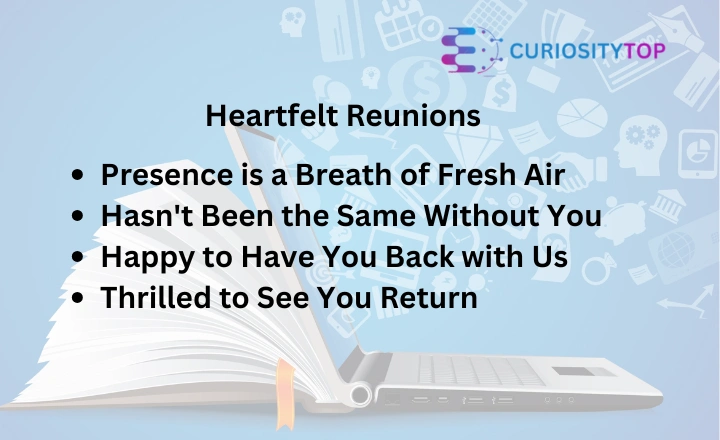
A colleague returning from a long project or a friend coming back from an extended trip. This is exactly what my friend Christine Deveau said when I returned from my long trip.
Your Presence is a Breath of Fresh Air
Usage Context: Creative environments, dynamic team settings.
Example Scenario: A consultant returning to a project or an artist coming back to a collaborative space.
Detailed Application: More than a greeting, this phrase implies renewal and positive transformation. It suggests the person brings unique energy that transforms the entire environment. Works brilliantly in contexts valuing individual creativity and perspective.
The Place Hasn’t Been the Same Without You
Usage Context: Professional and personal environments with strong interpersonal bonds.
Example Scenario: A key team member or beloved family member returning.
Detailed Application: This statement directly communicates the person’s unique value. It goes beyond simply missing someone, suggesting their absence creates a tangible void. The phrase works best when delivered with genuine sincerity.
So Happy to Have You Back with Us
Usage Context: Group settings, team environments, community reunions.
Example Scenario: A volunteer returning to an organization or a team member rejoining after personal time off.
Detailed Application: Energetic and inclusive, this greeting immediately reintegrates the person into the collective. It communicates individual and group happiness, creating an instant sense of belonging and importance.
You Were Dearly Missed
Usage Context: Emotional reunions, long-term separations.
Example Scenario: Reuniting with a loved one after months or years apart.
Detailed Application: Simple yet profoundly emotional, this phrase communicates deep affection. It validates the person’s significance and the emotional impact of their absence. Works best in highly personal, intimate reunions.
Thrilled to See You Return
Usage Context: Professional achievements, personal milestones.
Example Scenario: A respected colleague returning after a successful external project or a friend overcoming a challenging period.
Detailed Application: An enthusiastic greeting showing genuine excitement. It implies the return is not just anticipated but celebrated. The phrase carries an energy of anticipation and positive expectation.
Cheerful Greetings
What a Pleasant Surprise to See You!
Usage Context: Unexpected reunions, spontaneous meetings.
Example Scenario: Running into a friend you haven’t seen in years or a colleague returning unexpectedly.
Detailed Application: This phrase adds an element of delightful spontaneity to the reunion. It suggests the return was not just anticipated but truly exciting. The exclamation mark conveys genuine enthusiasm and creates an immediate positive emotional response.
Look Who’s Back! We’re So Happy!
Usage Context: Informal group settings, close-knit teams, friend groups.
Example Scenario: A team member returning after an extended absence or a friend coming back to a regular social gathering.
Detailed Application: An exuberant and playful greeting that immediately creates a celebratory atmosphere. It’s particularly effective in environments with strong interpersonal bonds, where the return is a cause for genuine excitement and joy.
You’ve Been Greatly Missed!
Usage Context: Professional and personal environments with deep connections.
Example Scenario: A valued team member returning to work or a family member coming home after a long time.
Detailed Application: Direct and sincere, this phrase leaves no doubt about the person’s importance. It communicates that their absence significantly impacted their return and is genuinely celebrated. It works best when delivered with authentic emotion.
Welcome Back, We Have So Much to Catch Up On!
Usage Context: Long-term separations, professional teams, close friendships.
Example Scenario: A colleague returning from a long project or a friend coming back from an extended trip.
Detailed Application: More than just a greeting, this phrase creates anticipation and shows genuine interest in the person’s experiences. It immediately opens the door to conversation and reconnection, making the return feel like the start of an exciting interaction.
Just Seeing You Brightens Our Day
Usage Context: Warm, intimate settings with close relationships.
Example Scenario: Reuniting with a loved one, a close colleague, or a cherished friend.
Detailed Application: An emotionally charged statement that immediately elevates the person’s significance. Their mere presence has a transformative effect on the environment, communicating deep appreciation and affection.
Formal Accolades
Your Return is Highly Celebrated
Usage Context: Professional achievements, organizational reunions.
Example Scenario: A key executive returning, a respected team leader coming back to a project.
Detailed Application: A sophisticated approach that conveys respect and professional admiration. This phrase is particularly effective in formal settings where the return signifies more than just a personal reunion but a strategic importance to the organization.
Warmest Welcome Back to the Team
Usage Context: Corporate environments, professional teams, workplace reunions.
Example Scenario: Returning from sabbatical, maternity leave, or extended professional development.
Detailed Application: Polished and professional, this greeting balances warmth and formality. It immediately reintegrates the person into the professional ecosystem while expressing genuine happiness about their return.
Honored to Have You Rejoin Us
Usage Context: Professional settings with high-respect environments.
Example Scenario: A respected expert returning to a specialized team or a consultant rejoining a critical project.
Detailed Application: This phrase emphasizes deep respect for the person’s skills and contributions. It goes beyond a simple welcome, suggesting their return is appreciated and considered a privilege for the team or organization.
Delighted at the Return of Our Esteemed Colleague
Usage Context: Highly formal professional environments and academic settings.
Example Scenario: A senior researcher returning to a research team or a distinguished professional rejoining an organization.
Detailed Application: A very formal greeting that communicates the highest professional regard. It implies that the person’s return is not just welcomed but is a significant event worthy of special recognition.
Your Comeback is Cause for Celebration
Usage Context: Leadership returns, significant professional milestones.
Example Scenario: A team leader returning after a successful external project or a key innovator rejoining an organization.
Detailed Application: More than a greeting, this phrase treats the return as a momentous event. It suggests the person’s comeback is significant enough to warrant collective celebration, highlighting their unique value and impact.
Casual Welcome-Backs
Back in Action, I See! Good to Have You
Usage Context: Relaxed, informal settings, social and recreational environments.
Example Scenario: Returning to a regular sports team, volunteer group, or casual work environment.
Detailed Application: A laid-back, energetic greeting that works well in environments valuing casual interaction. It implies a sense of continuity and immediate reintegration, making the return feel natural and uncomplicated.
Couldn’t Wait to Welcome You Back!
Usage Context: Enthusiastic group settings, close-knit teams.
Example Scenario: Reuniting with a team member, friend group, or community participant.
Detailed Application: Conveys pure excitement and anticipation. This phrase communicates that the person’s return was not just expected but eagerly awaited. It creates an immediate sense of importance and belonging.
Happy to Have You Back
Usage Context: Universal application across personal and professional settings.
Example Scenario: Works in virtually any reunion scenario, from family gatherings to workplace returns.
Detailed Application: The most versatile welcome back phrase. Simple, direct, and universally applicable. Its strength lies in its straightforward sincerity, which can convey genuine emotion across diverse contexts.
Conclusion
Every return tells a story of resilience, journey, and reconnection. These 23 expressions offer a compassionate language that celebrates reunions, acknowledging the unique value each person brings. From professional settings to personal relationships, the right welcome back phrase can transform a simple greeting into a moment of genuine emotional significance and heartwarming appreciation.
FAQs
What does glad to have you back mean?
It means someone is genuinely happy and delighted to see you return after an absence, expressing warmth and excitement about your comeback or reunion.
What does “nice to have you back” mean?
A friendly greeting expresses happiness and pleasure about someone’s return, welcomes them warmly, and shows appreciation for their presence after being away.
What is the expression to have someone’s back?
To support, protect, and defend someone unconditionally, ensuring their safety and well-being during challenging situations, demonstrating loyalty and commitment to their success.
What is a word for having your back?
Synonyms include support, protect, defend, guard, care for, watch out for, and stand by someone during difficult times, showing unwavering loyalty.

